There have been more than 60 years of change between the oldest baby Boomer and the youngest member of Gen Z. Considering this, their obvious and sometimes divisive differences become less surprising. However, such a fact doesn’t take away their humble right to poke fun at each other once in a while.
That’s why the digital world is full of memes that friendly mock the quirks and oddities of these generations. Bored Panda scoured the web and curated a list of some of the best ones. All you have to do is scroll down and enjoy!
While you’re at it, don’t forget to check out a conversation with a leading expert on Generation Z, Corey Seemiller, PhD, who kindly agreed to answer some questions about these age groups.
#1

Image credits: yugiohyugioh
#2
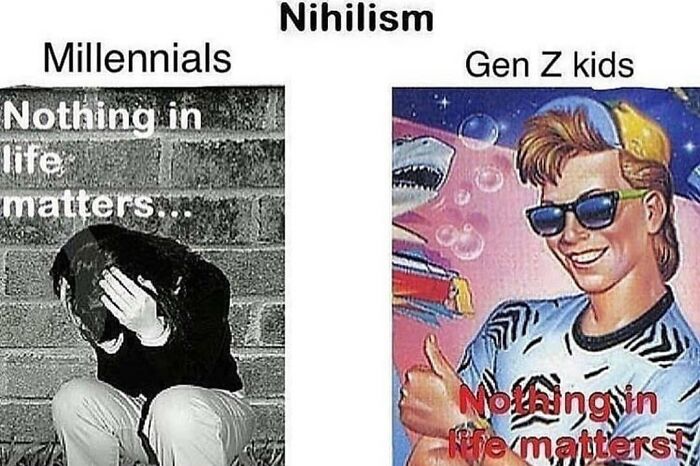
Image credits: NeDge_
#3

Image credits: hectatiu
From innocent memes to Boomers ruining the economy to Gen Z being addicted to technology, generational stereotypes have become so common they have become clichés. Bored Panda reached out to a leading expert on Generation Z, Corey Seemiller, PhD, to learn more about the topic.
She explains that they are, to some extent, based on reality. “Either someone has a unique experience and makes a claim about a group of people, which catches like wildfire, particularly in the era of social media, or there is enough validation that something is true to some extent.
For example, many in the GI Generation who grew up during the Depression held onto hoarding tendencies even well after they aged out of an era of scarcity. There was enough truth in that assertion that it became a well-known characteristic of those in the GI Generation.”
#4
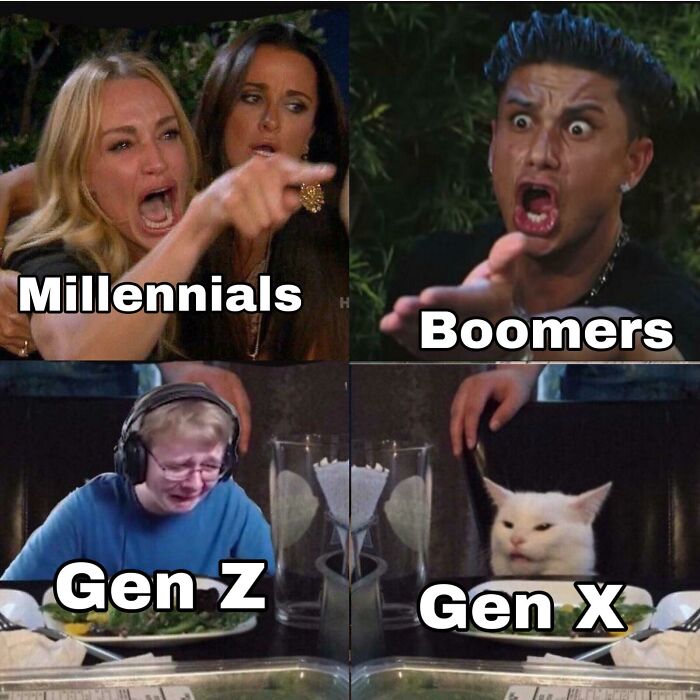
Image credits: WereTheChosenOne
#5

Image credits: GreenElvisMartini
#6

Image credits: reddit.com
Seemiller mentions that while characterizing different age groups is common, it’s often counterproductive. She said that assigning particular traits to a group of people fails to acknowledge the importance of outside factors that might help recognize why they're struggling. Let’s take the articles that say Gen Z quits when things get hard, for instance.
“First, not all Gen Zers quit when things get hard. Look at all the athletes, entrepreneurs, and everyday kids who persist beyond any obstacles thrown their way," explains Seemiller.
"Second, if a large number of Gen Zers are prone to quitting, what factors might be leading to that? For example, in the job market…is it to take another higher-paying job because the economy is tough and they can’t make ends meet? Is it to have a better work-life balance and tend to their mental health needs, which we know are high? There is always more to the story than just the observable behavior.”
#7
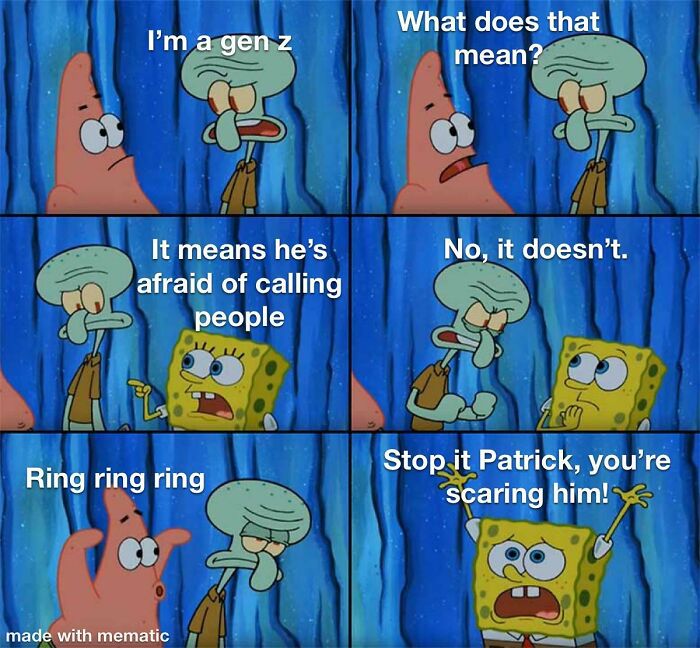
Image credits: google_earthyay
#8
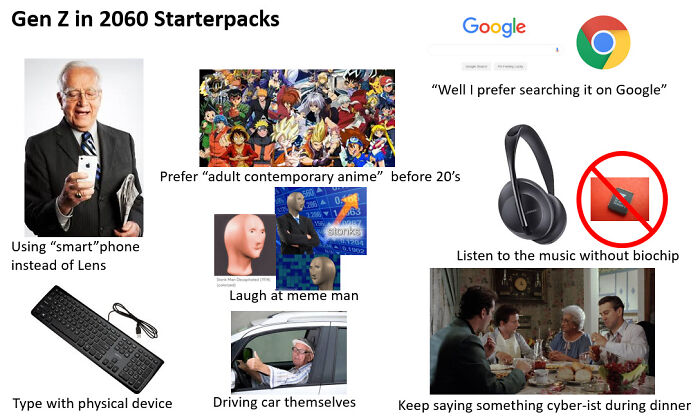
Image credits: righthandcat
#9

Image credits: Squaliebawse
If we looked even closer at the data, we would see that to succeed in this day and age, we need to consider a lot of additional factors like rising wealth inequality, stagnant salaries, and the need for more advanced and expensive education to compete in the labor market. The “delayed adulthood” that many young people experience is not related to their personalities but rather to external aspects like high housing costs.
#10

Image credits: Blaze_sempai
#11

Image credits: generichumanidk
#12

Image credits: RenegadeMemelord
Another example where stereotyping becomes counterproductive is our concern over climate change. Many people assume that younger generations are the most worried about this issue and are the ones leading movements against global warming. However, after Bobby Duffy, author of The Generation Myth: Why When You’re Born Matters Less Than You Think, analyzed public opinion, he found that anxiety about the climate crisis is rising among all age groups, with little difference between them.
#13

Image credits: Jimmy1921
#14
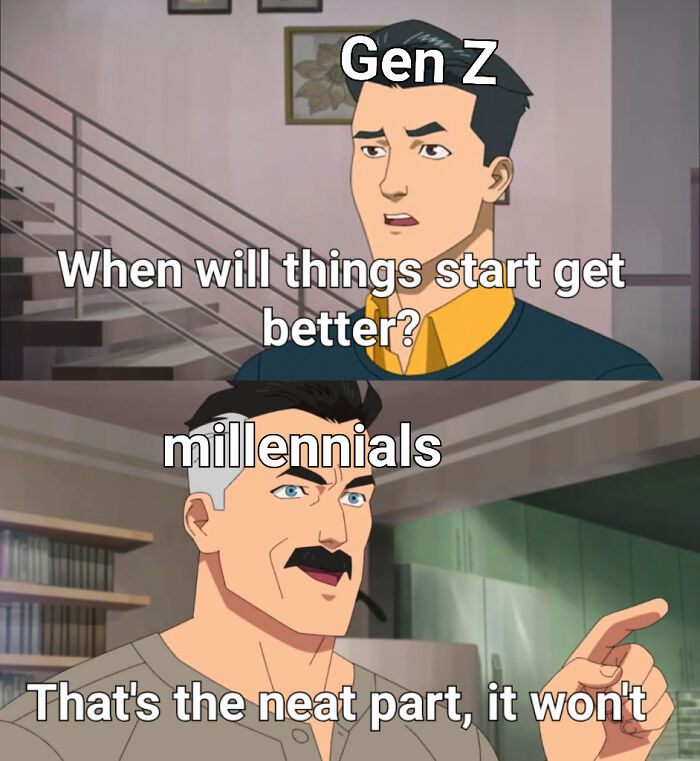
Image credits: SkepticDrinker
#15

Image credits: idea4granted
In addition, he revealed that while younger-generation activism brings attention to this problem, Boomers are more likely to change their behavior to help the planet. This means that generational stereotypes of “selfish” older generations and caring Gen Z can be misleading. It also puts our faith in younger generations, hoping they’ll solve this global issue rather than encouraging all of us to step in and help.
#16

Image credits: Hungry_headoverheels
#17
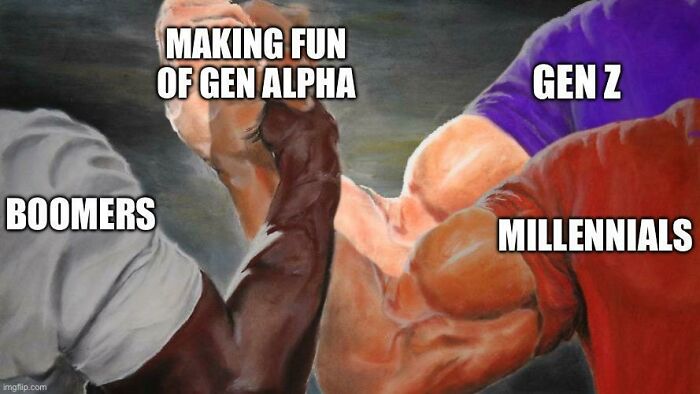
Image credits: BlackagarBoltagon01
#18

Image credits: reddit.com
Instead of stereotyping, looking at data and trends in a group of people and trying to understand them can be very informative. Seemiller suggests that this is extremely useful, particularly in working environments.
“For example, many Gen Xers were latch-key kids growing up—not all, but a lot. And those who weren’t still came of age in an era when this was a trend.
Knowing that many Gen Xers prefer hands-off leadership and autonomy at work (as evidenced by research) can give a supervisor a starting point to better understand the expectations of their employee. However, having a conversation about one’s individual needs and preferences is also essential," she says.
#19

Image credits: conserva_who
#20
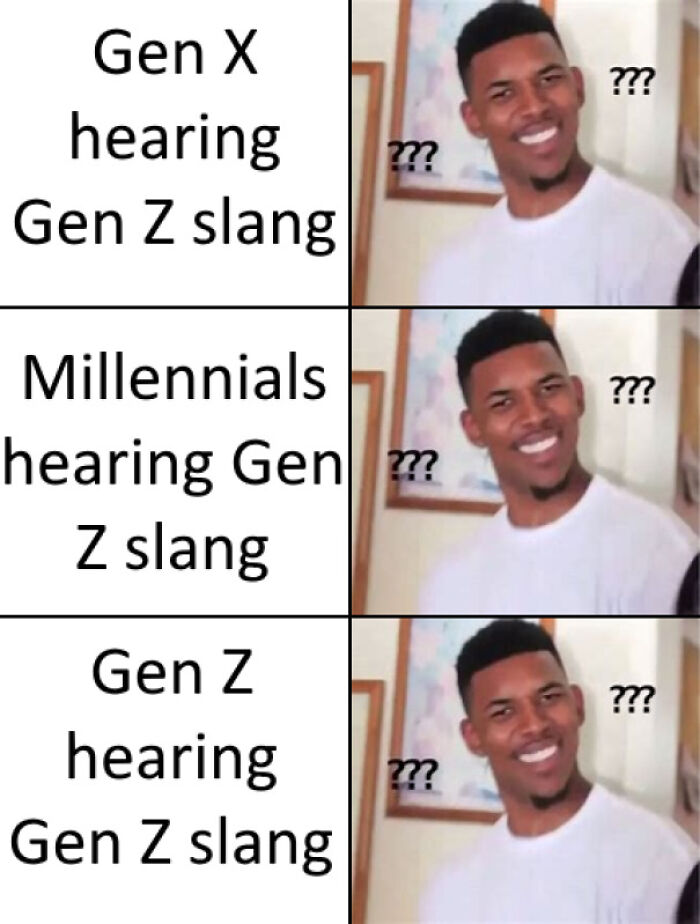
Image credits: HashtagTSwagg
#21
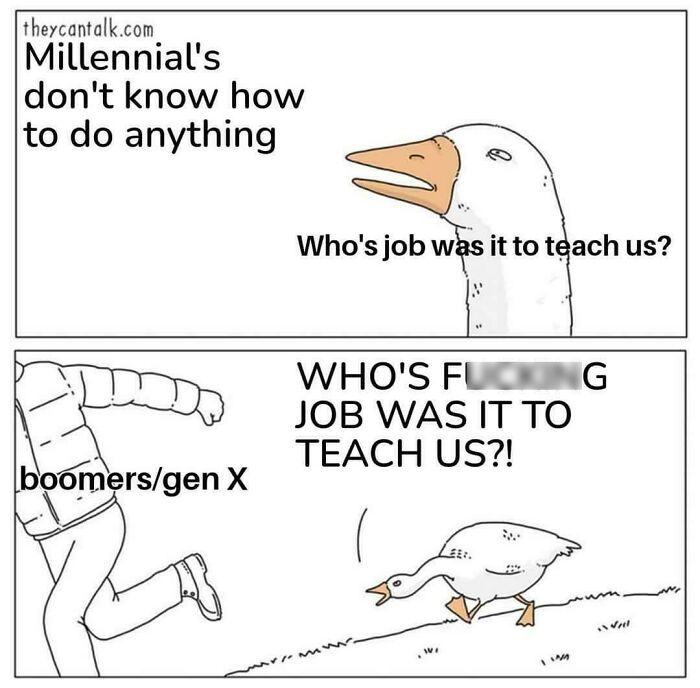
Image credits: kit0000033
Duffy proposes that we need to stop blaming young people for something that's out of their control. However, the older generations often fail to see how much the world has changed since they were young adults, not recognizing that the opportunities they had no longer exist.
Instead, it might seem easier to rely on our subjective opinions and overgeneralize the young. However, Duffy writes, “It’s vital that we resist the lure of these simple answers, as they are likely to distract us from taking necessary action.
#22
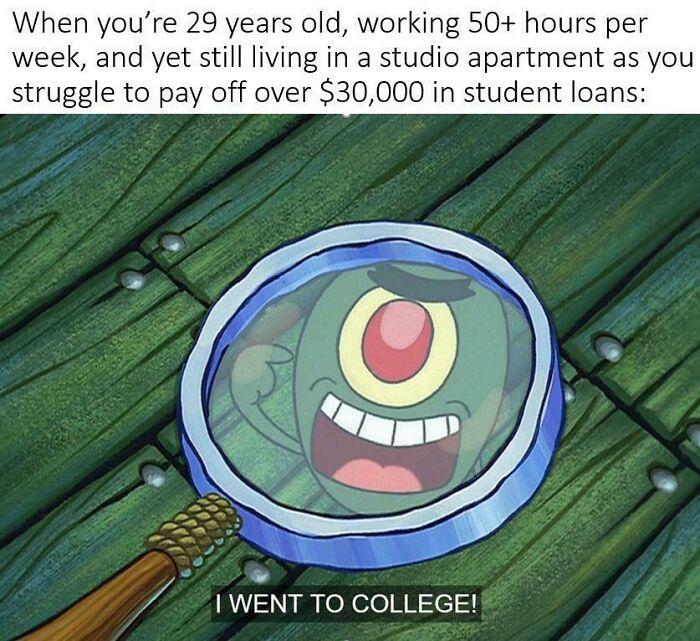
Image credits: Felipe-IV
#23
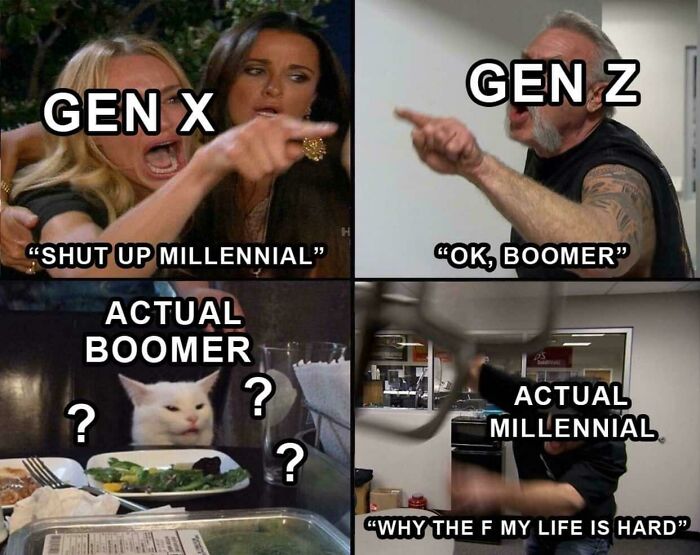
Image credits: xluzix
#24
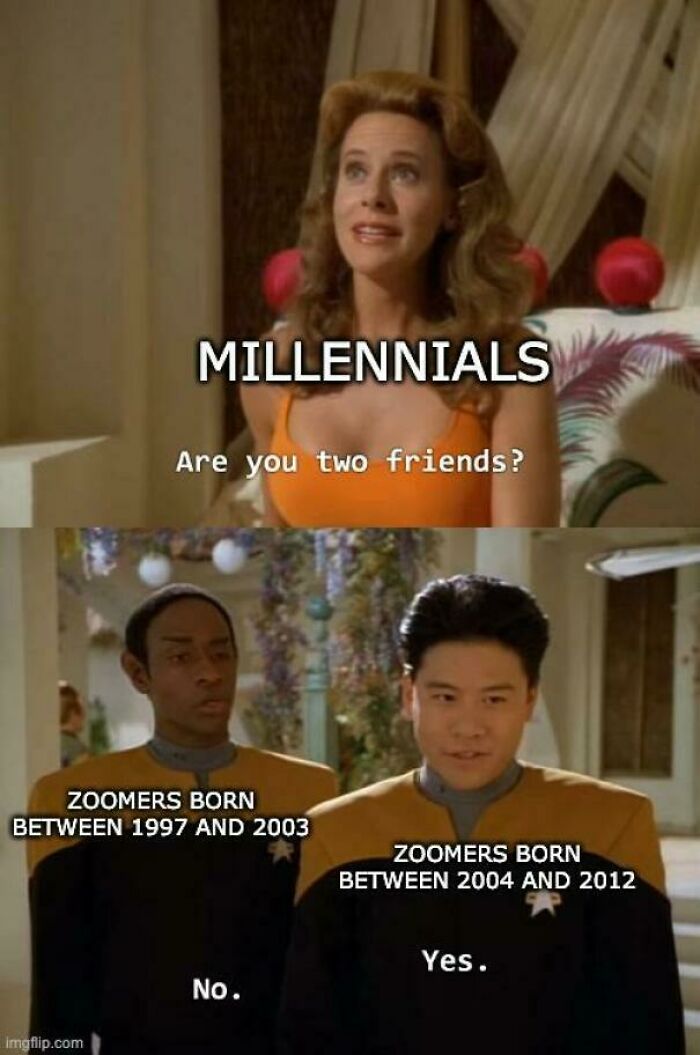
Image credits: ContributionOk4879
Meanwhile, Seemiller encourages us to appreciate generational differences, leveraging each other’s strengths. “For example, if a Millennial needs a lot of feedback, it’s important that no matter who supervises them, they provide feedback. We have to meet each other where they are,” she says.
#25
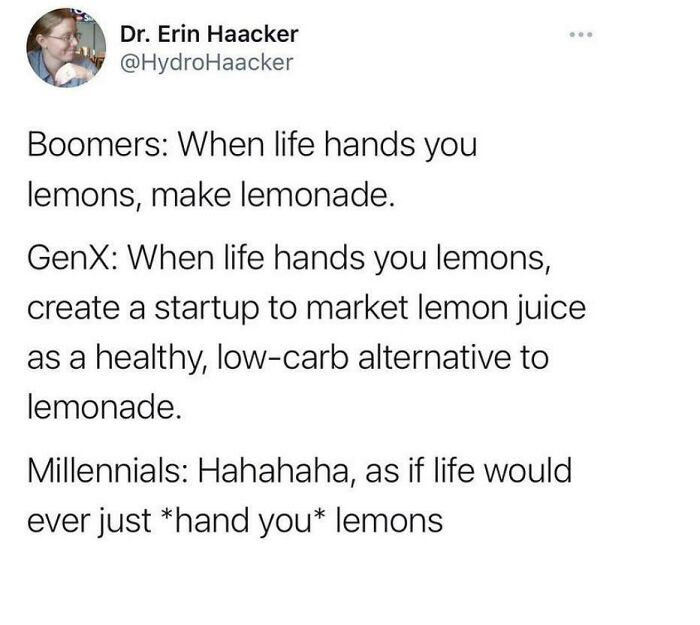
Image credits: cfhsofttcjfry
#26
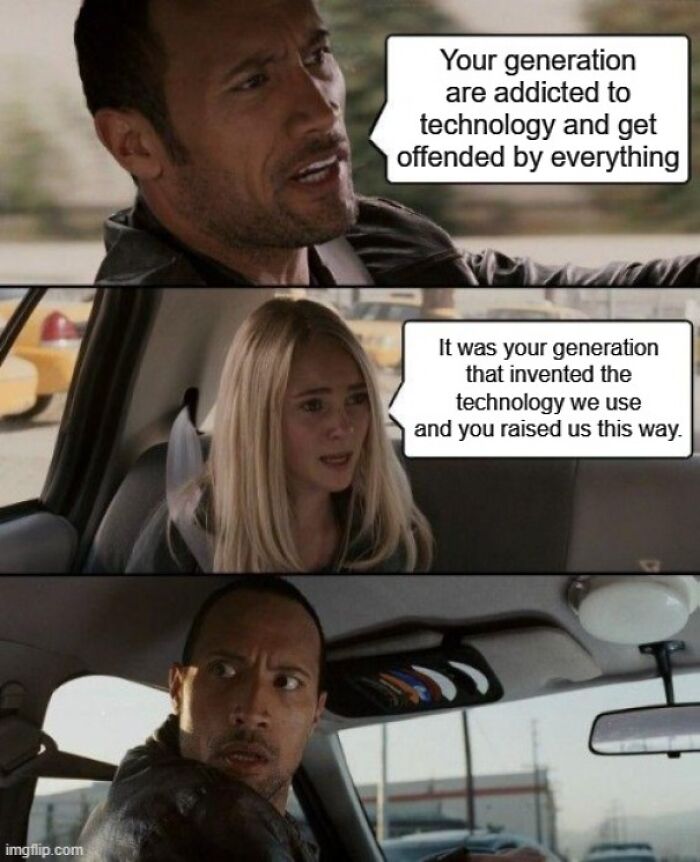
Image credits: DankCrypto
#27
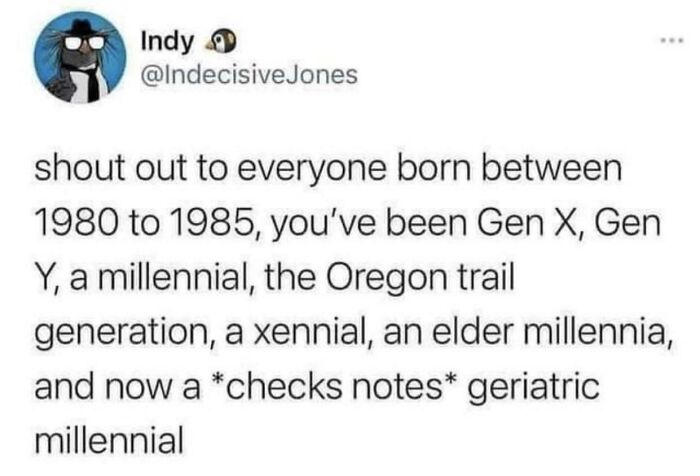
Image credits: iamcoollife1994
She signs off by saying that people can take advantage of their differences and learn something from them. “Younger generations can learn a lot from Boomers as well as they can learn a lot from their younger colleagues/friends/family members who can provide an alternative to instinctual decision-making by offering more data-driven solutions. Thus, between the two, the best idea might emerge.”
#28
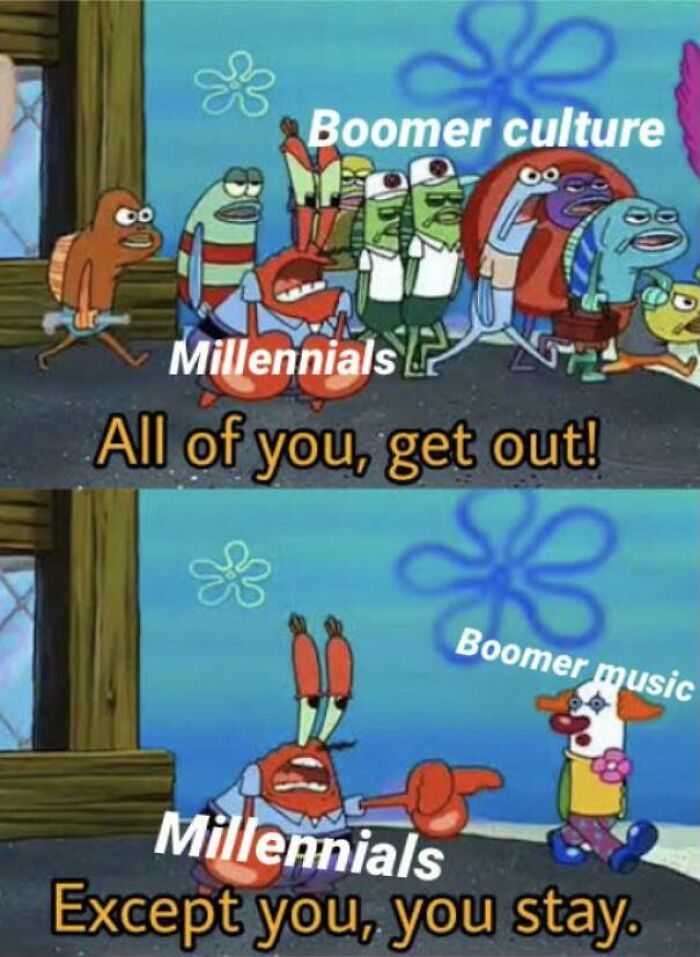
Image credits: Densi69
#29
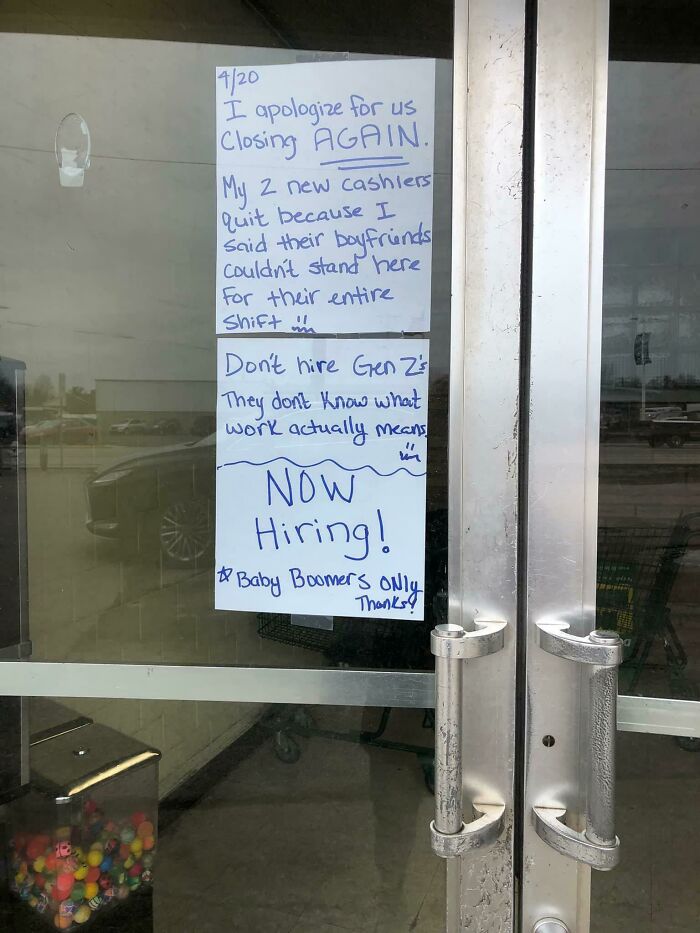
Image credits: mysterioussoup
#30
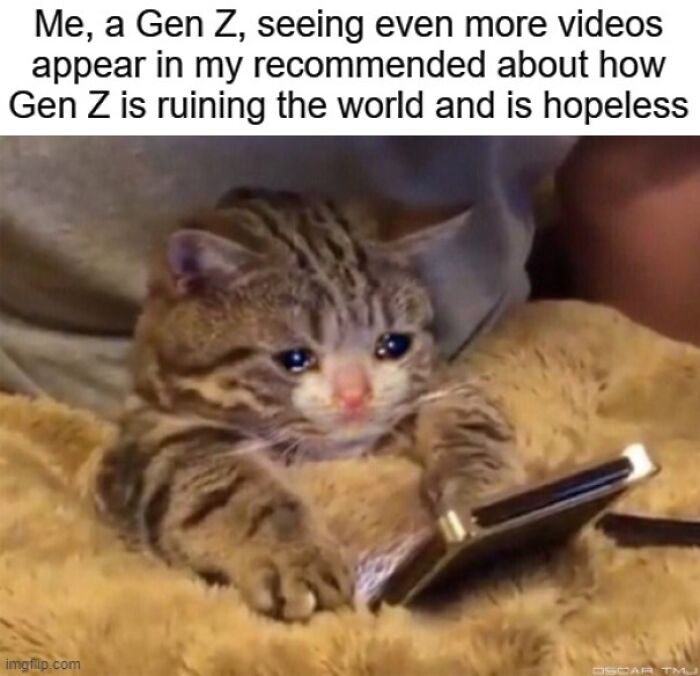
Image credits: TheGuy_1985
#31
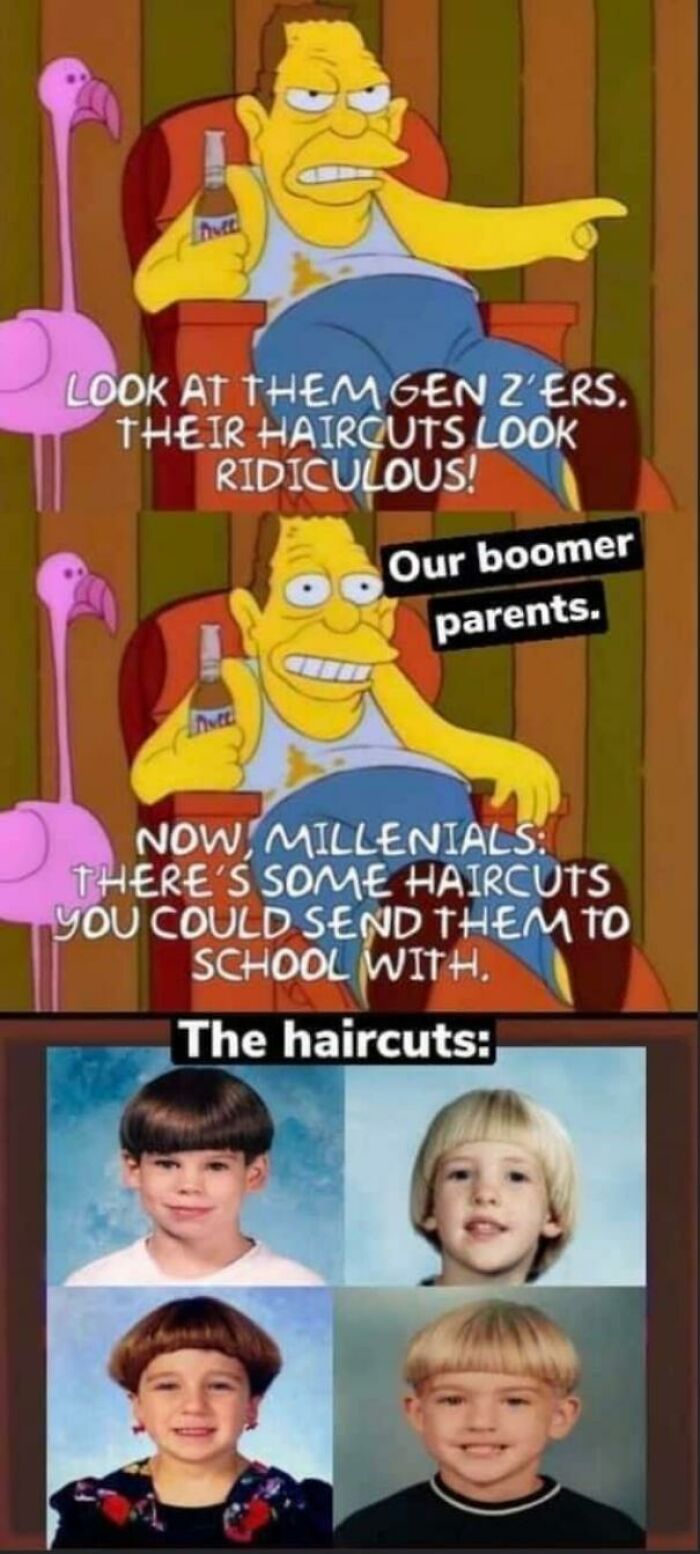
Image credits: Dufftones
#32

Image credits: reddit.com
#33

Image credits: Brohoement
#34
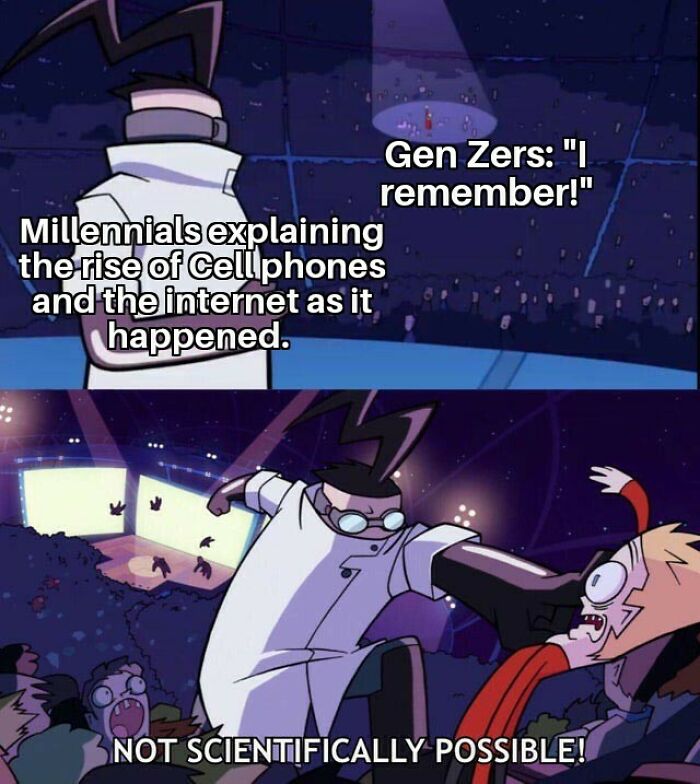
Image credits: ViveroCervantes
#35

Image credits: pranitzambre
#36
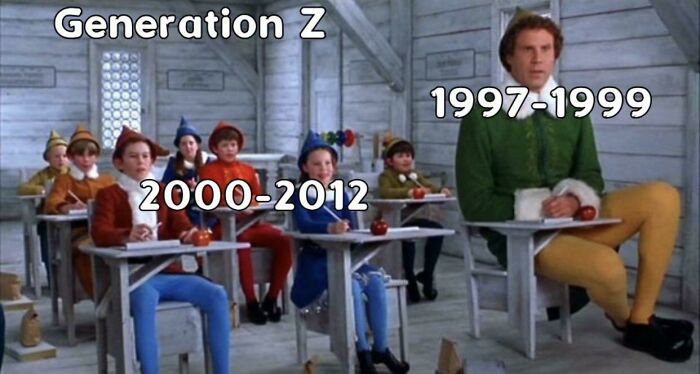
Image credits: The-LeftWingedNeoCon
#37

Image credits: Trolldudswag
#38
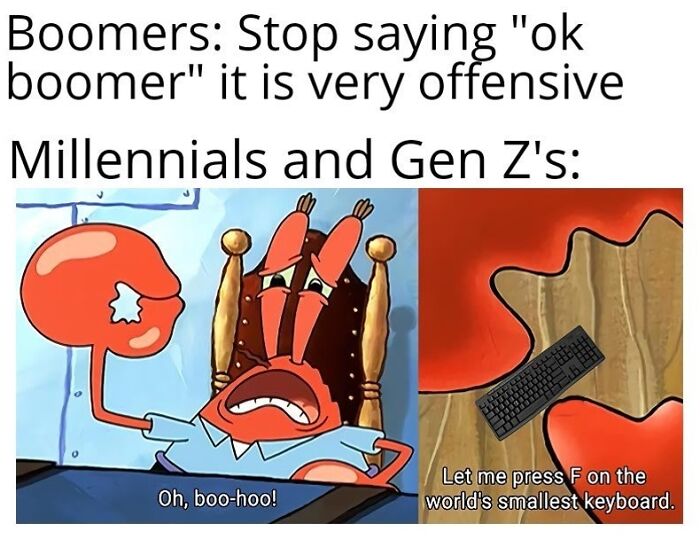
Image credits: UrbanelyFrost35
#39
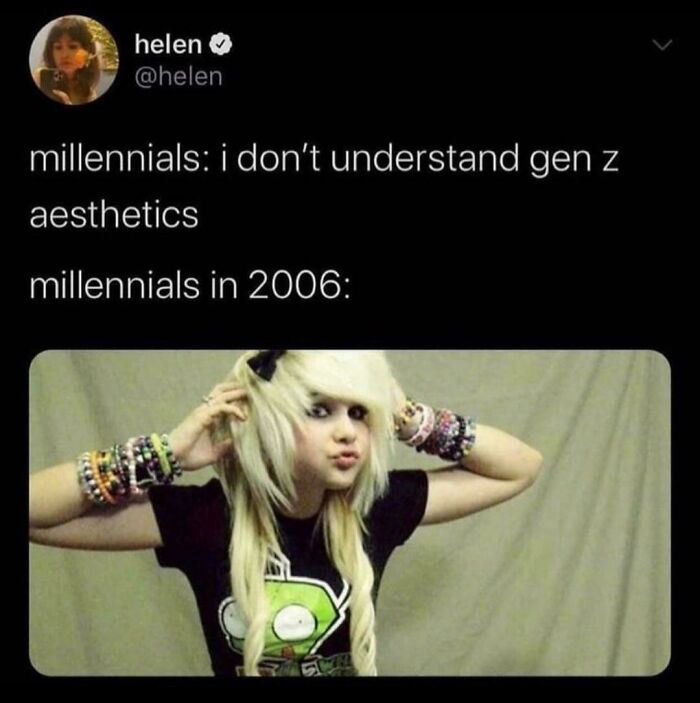
Image credits: Accomplished_Cake657
#40

Image credits: noel_mon
#41

Image credits: johan_james
#42

Image credits: CrazyAssBlindKid
#43

Image credits: _big_mac_5000_
#44
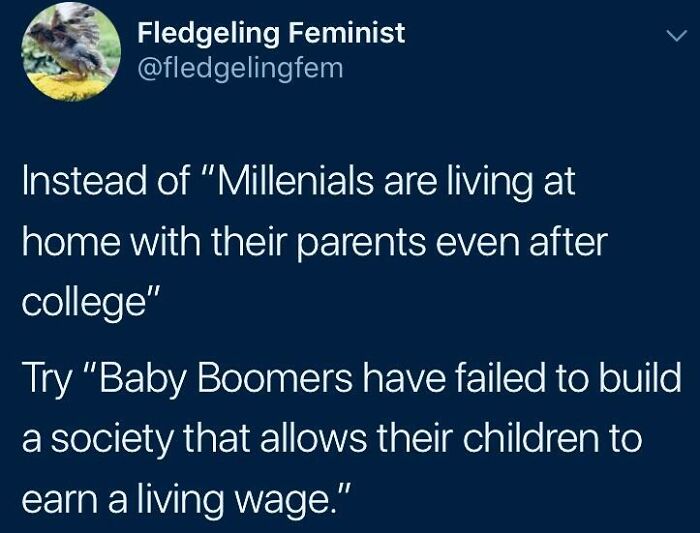
Image credits: 2DeadMoose
#45
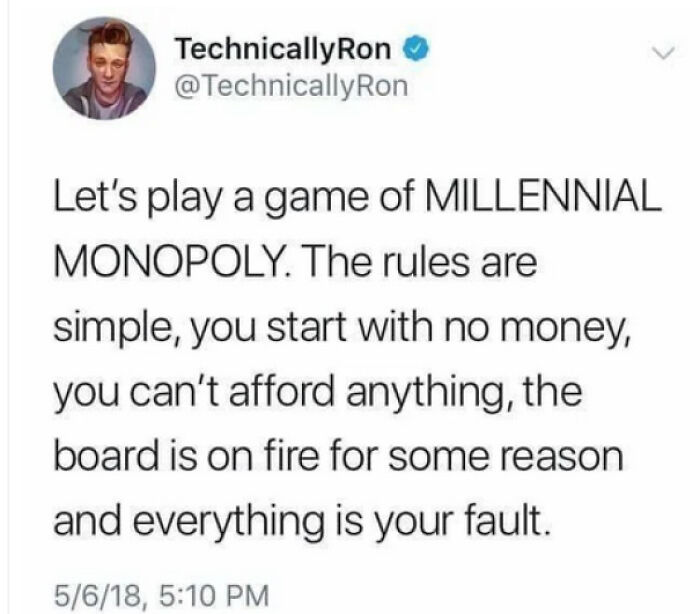
Image credits: Pleasant-Force
#46

Image credits: whoahmama69
#47

Image credits: satans_bootyhole
#48
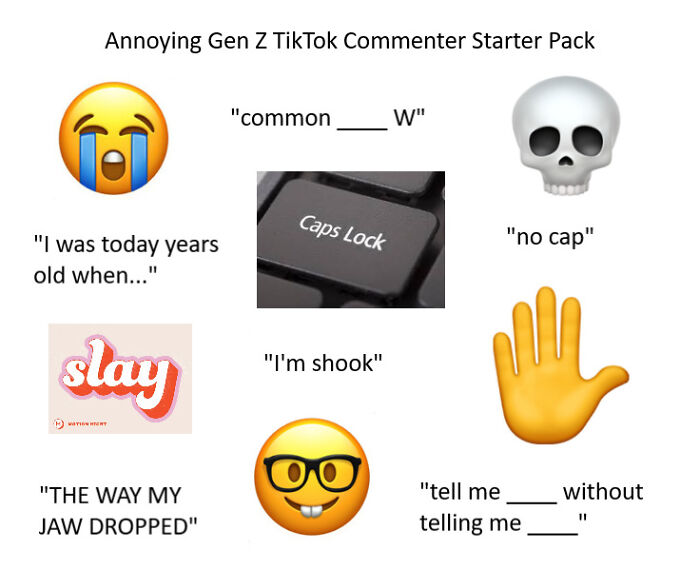
Image credits: POMNLJKIHGFRDCBA2
#49

Image credits: Ch_Anderson
#50

Image credits: NuclearRoomba
#51
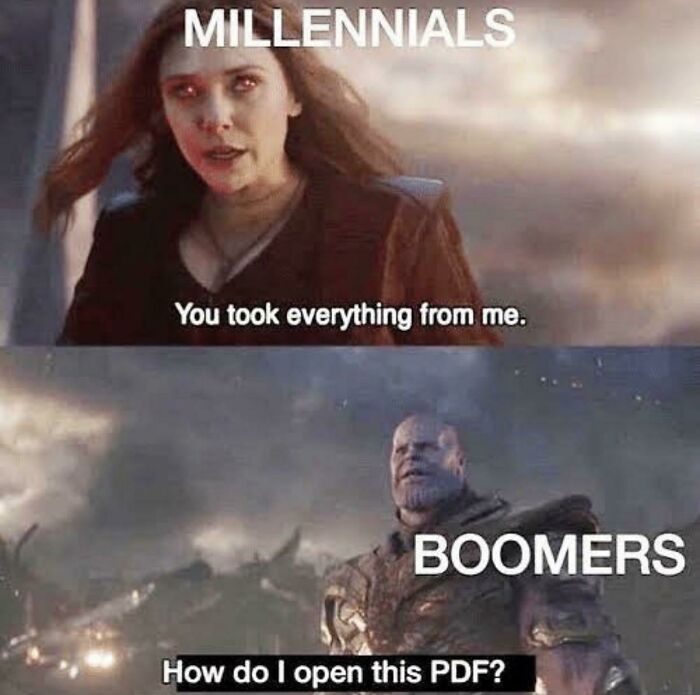
Image credits: BiAdventureTime
#52
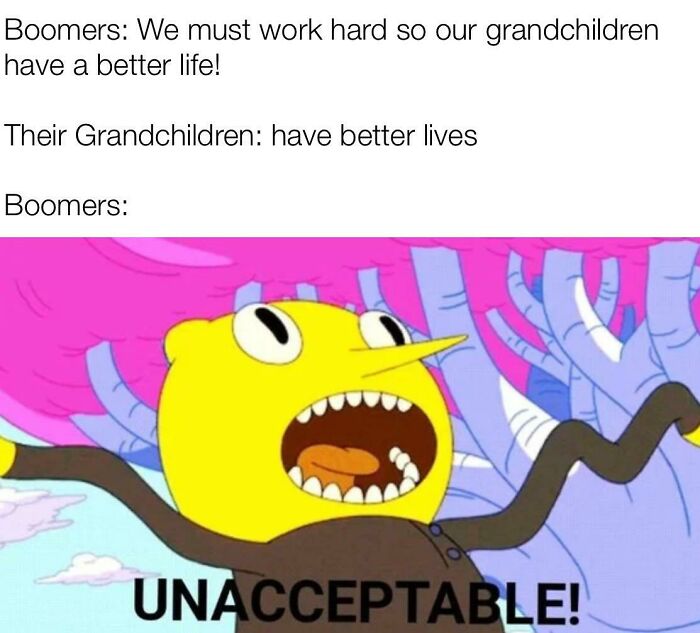
Image credits: I_indeed_like_pasta
#53

Image credits: PlaneDot
#54

Image credits: reddit.com
#55
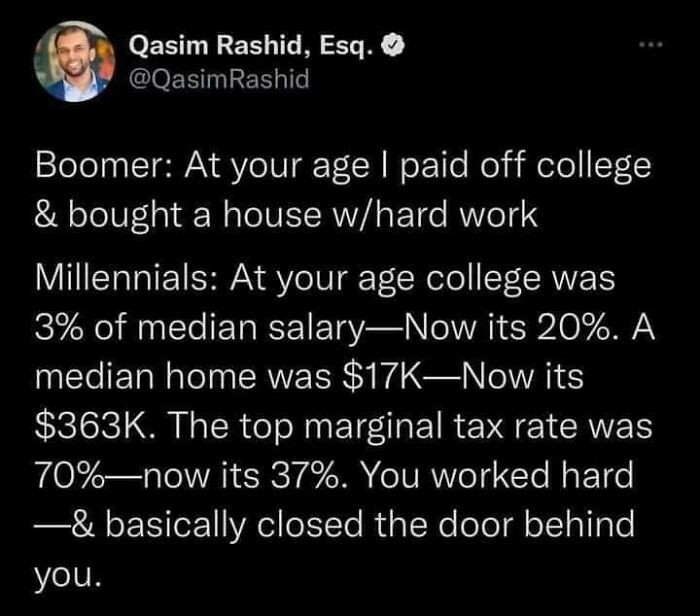
Image credits: Monsur_Ausuhnom
#56

Image credits: athoxunderdog












 English (US) ·
English (US) ·